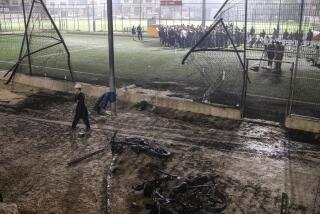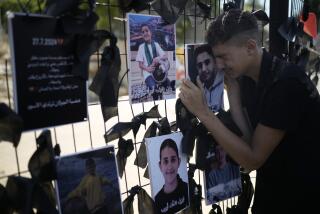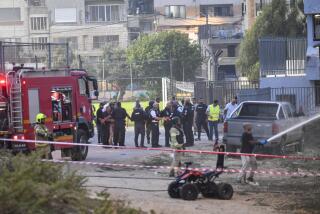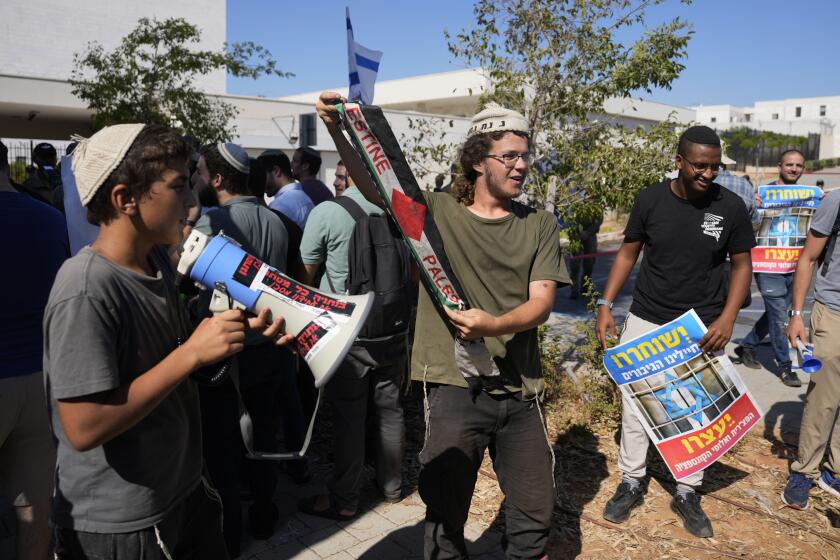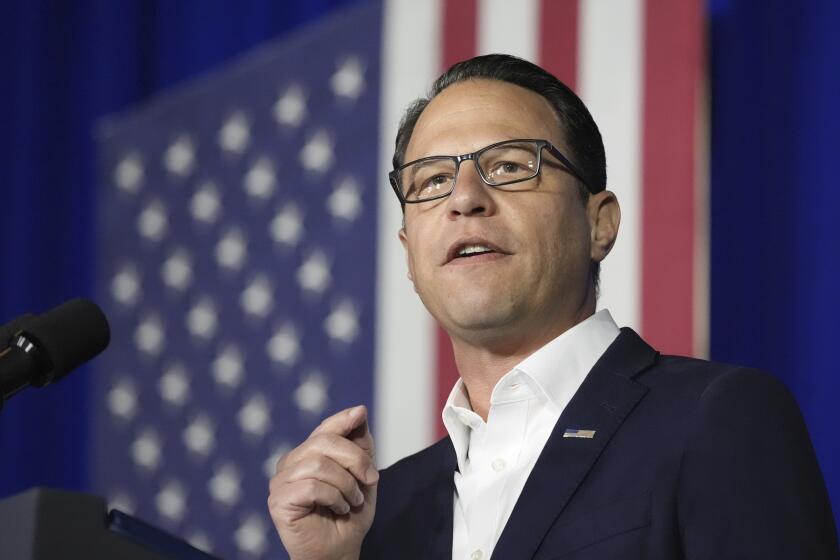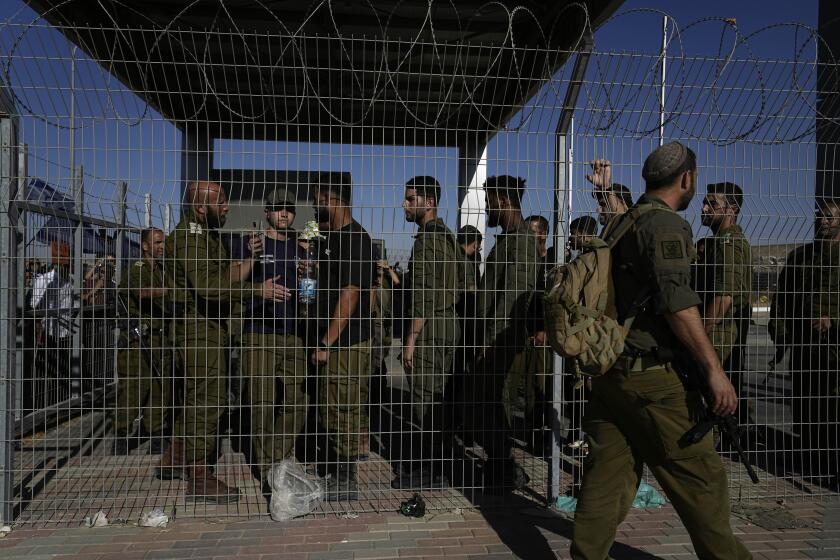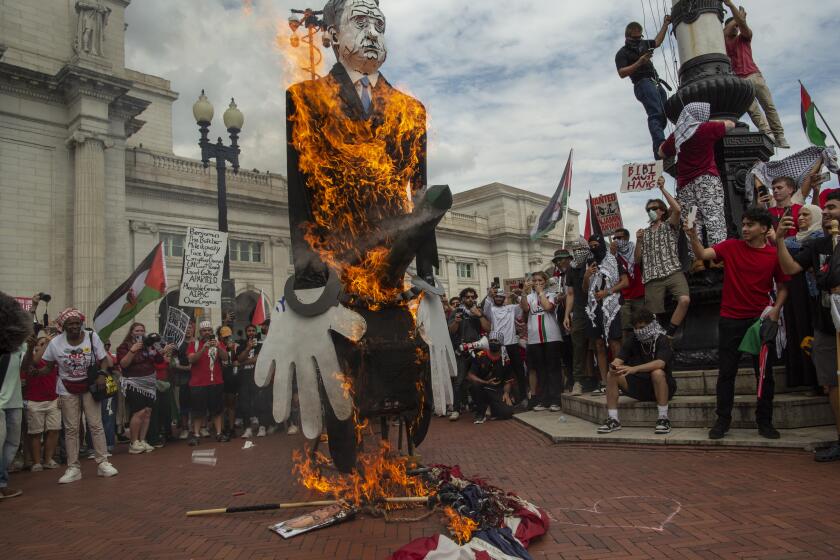Israel says it killed Hezbollah commander in Beirut strike
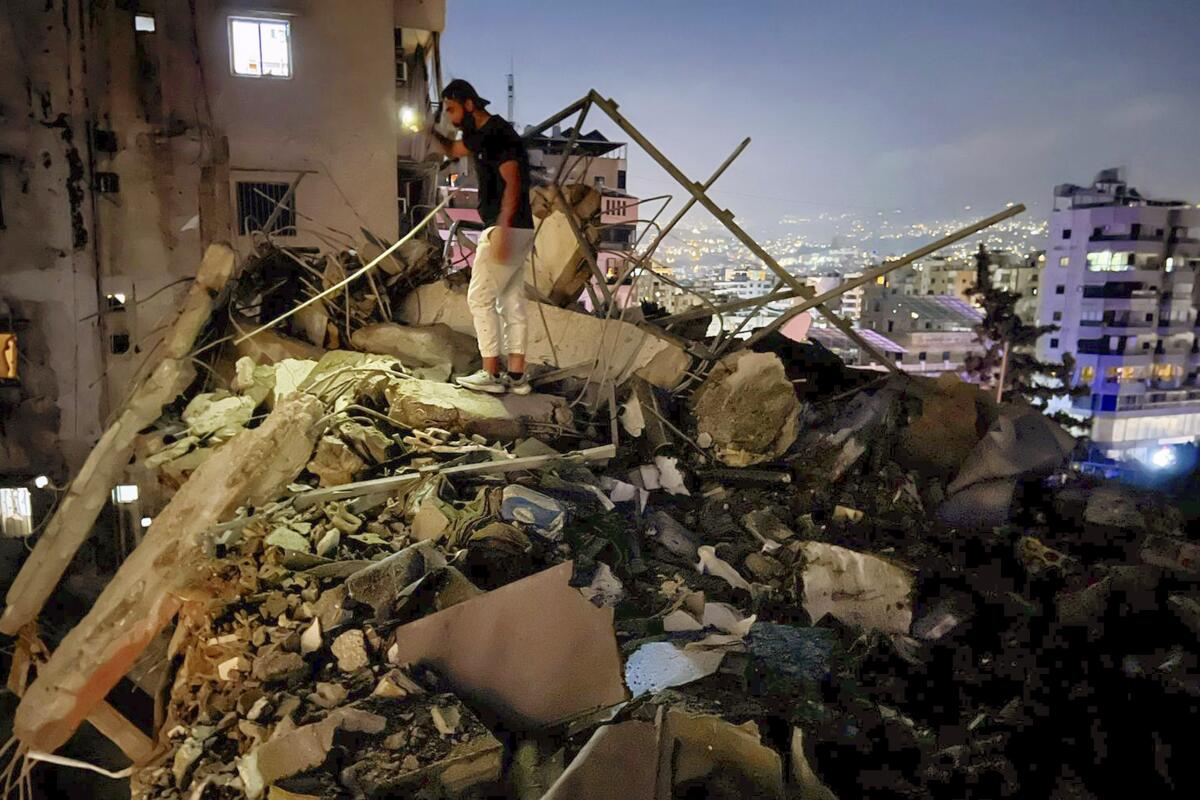
Israel conducted an airstrike Tuesday, targeting what it said was the senior Hezbollah commander responsible for a rocket attack over the weekend that killed a dozen Syrian children and young adults in the Israeli-occupied Golan Heights.
Lebanon has held its collective breath for days, with speculation rampant over what Israel’s response would be following a missile strike on Saturday that hit a football field in Majdal Shams, a Syrian town in the Golan Heights.
Israel blamed Hezbollah for the attack, a charge the Iran-backed faction denied. A day later, Israel’s air force said it hit seven Hezbollah targets deep in Lebanon.
The airstrikes Tuesday evening appeared to be more limited, hitting a residential building near a hospital in the Hezbollah-dominated suburb of Beirut known as the Dahieh. Residents near the site of the blast said they heard a trio of explosions. The state-run National News Agency said it was the work of a drone firing three missiles.
Lebanon’s public health ministry said one woman was killed along with two children. An additional 74 people were wounded — three of them critically, the ministry said.
“It shook the ground. It felt really close,” said one gas station attendant who asked not to be named.
A 27-year-old architect who gave his name as Jawad said he had been in the street when the attack happened.
“The first missile landed, and barely a second passed before another came,” he said. The missiles targeted near the top corner of an eight-story building, leaving at least one apartment a jagged, debris-filled maw and damaging a number of others.
Jawad pointed to sprinklings of glass on the street. “All this is from the top floors of the buildings around us,” he said.
The Israeli military claimed responsibility for the attack, saying it had “carried out a targeted strike in Beirut, on the commander responsible for the murder of the children in Majdal Shams and the killing of numerous additional Israeli civilians.”
A later statement identified him as Fuad Shukr, also known as Hajj Mohsin, describing him as the “right-hand man” to Hezbollah leader Hassan Nasrallah and a senior member of the group’s jihad council. The U.S. had put a $5-million bounty on Shukr’s head for “play[ing] a central role” in the 1983 Marine barracks bombing in Beirut.
“Hezbollah crossed the red line,” wrote Israeli Defense Minister Yoav Gallant.
The Lebanese Foreign Ministry condemned the attack, saying in a statement to the Reuters news agency, “We will file a complaint to the United Nations.”
Pro-Hezbollah officials, speaking on local media channels, said the operation had failed to kill its intended target.
Though Hezbollah and Israel are longtime enemies, in recent years the fighting between the two had been limited to little more than the occasional exchange of missives. But tensions escalated after Hamas’ Oct. 7 attack against Israel, and Israel’s subsequent military offensive in Gaza. Hezbollah escalated a rocket campaign along the Israel-Lebanon border in solidarity with Hamas militants.
Since then, the tense quiet that once reigned on the border has been replaced by an almost daily exchange of fire. Both sides insist they do not want an all-out war, but say they are prepared for it.
The U.S. is intensifying diplomatic efforts to ensure the hostilities don’t devolve into a full-on war.
“I unequivocally support Israel’s right to defend itself against terrorism — and that is precisely what Hezbollah is doing,” said U.S. Vice President Kamala Harris in a news conference after the strike.
“However, we must work toward a diplomatic solution to end the attacks.”
U.S. State Department spokesman Vedant Patel said: “We defer to Israel to speak to its own military operations. We reiterate our clear position: Our commitment to Israel’s security is ironclad and unwavering against all Iran-backed threats, including Hezbollah.”
More to Read
Sign up for Essential California
The most important California stories and recommendations in your inbox every morning.
You may occasionally receive promotional content from the Los Angeles Times.
